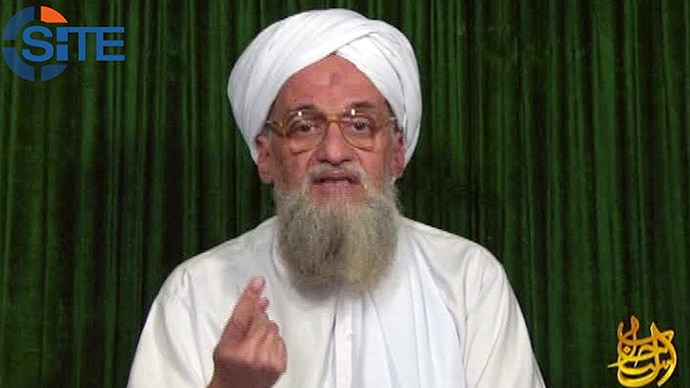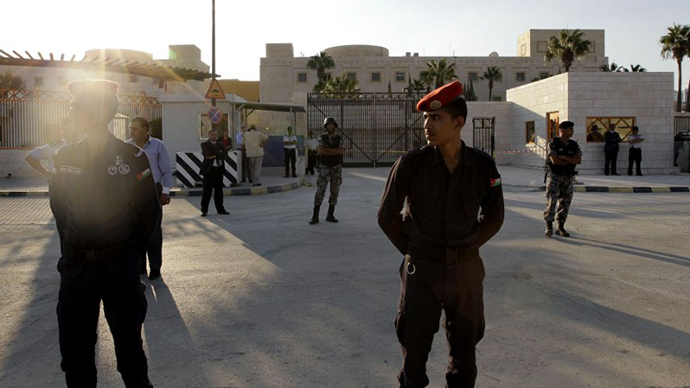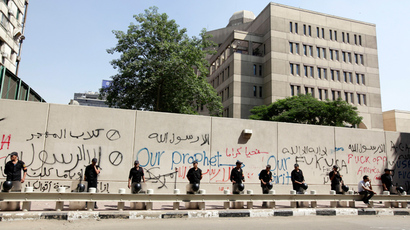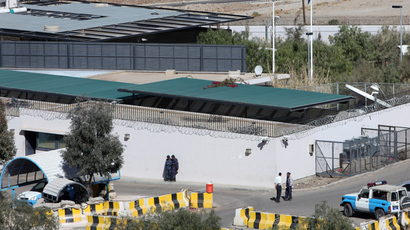US Special Forces on alert against Al-Qaeda attacks following intercepted communiques

Intercepted communiques between Al-Qaeda leadership and its affiliated branch in Yemen have led to major terror alert at US diplomatic sites. But some doubt that the lockdown of almost all the posts is proportionate to the threat.
Last week the Obama administration took the unusual step of closing about two dozen diplomatic facilities throughout the Middle East and Africa, as well as issuing a worldwide travel alert. Those actions were followed by similar moves by the UK’s Foreign Office, which on Friday advised British nationals to leave Yemen if possible. France, Germany and Norway have also announced closures of some of their missions in the region.
On Tuesday the State Department ordered that the US embassy in Yemen evacuate its non-essential staff due to “the continued potential for terrorist attacks.” It also issued a warning to US citizens to depart the country immediately.
It is now thought that an uptick in chatter from the head of Al-Qaeda, Ayman al-Zawahri, speaking from Pakistan with Nasser al-Wuhayshi, the head of Al-Qaeda’s Yemen group, revealed an impending attack, as early as this past weekend.
According to the New York Times, the conversation between the two
leaders was considered “highly unusual” and immediately led the
State Department and the White House to act, prompting members of
Congress to indicate last week that a credible terrorist plot was
already underway.
“This was significant because
it was the big guys talking, and talking about very specific
timing for an attack or attacks,” said one American
official who spoke with the New York Times.
The State Department on Sunday announced that it was closing an
additional 19 diplomatic offices through next Saturday due to
continued intelligence suggesting an imminent threat, but not due
to additional information which set off increased precautions
since last week.

The latest closures were “merely an indication of our commitment to
exercise caution and take appropriate steps to protect our
employees and visitors to our facilities,” according to
the State Department.
Meanwhile, a senior Obama administration official had indicated
to CNN on Monday that Special Forces units overseas had been on
alert for the past several days for a potential attack on
Al-Qaeda targets. Those units had been placed on heightened alert
by Defense Secretary Chuck Hagel as of last week, as US
intelligence continued to examine the details of the credible
threat.
Speculation on potential US targets seemed high over the weekend,
with an anonymous Western diplomat speaking to the New York Times
saying the American mission in Islamabad, Pakistan had received
unconfirmed reports that militants had assembled in the Margalla
Hills overlooking the city.
“The assumption is that it’s
probably most likely to happen in the Middle East,”
Representative Peter T. King said on Sunday on the ABC News
program “This Week.”
“But there’s no guarantee of
that at all. It could basically be in Europe, it could be in the
United States, it could be a series of combined attacks,”
added King, who is a member of the House Intelligence Committee.
The broad scope of the potential threat indicated that the only
solid point so far was that the alleged terrorist plot was
centered on Al-Qaeda’s Yemen branch, generally considered the
deadliest element of the network by US analysts.
Terror alert overblown?
The news of the intercepted Al-Qaeda chatter came as debate continues in the US over the reach of NSA surveillance programs and its justification by national security benefits. At the focus of criticism was the agency’s use of powers granted by the Patriot Act for bulk domestic electronic surveillance.
After the latest terror alert, some proponents of NSA surveillance tactics were quick to say the news speaks for the agency’s case.
"These programs are controversial, we understand that," Republican Senator Saxby Chambliss told NBC's Meet the Press on Sunday. "But they are also very important … If we did not have these programs, then we simply would not be able to listen in on the bad guys."
Opponents disagree with that reasoning and criticize those linking the threat with NSA domestic surveillance.
"While I can't go into specific details, the vice chairman of the Senate Intelligence Committee noted yesterday that this information was collected using Section 702 of the Foreign Intelligence Surveillance Act, rather than the Patriot Act,” said Democrat Senator Ron Wyden as cited by The Guardian newspaper. “I still haven't seen any evidence that the NSA's dragnet surveillance of Americans' phone records is providing any unique value to American counterterrorism efforts."
Some alleged that the shutdown of US embassies and the media hype it caused may have been blown out of proportion.
“The NSA takes in threat information every day. You have to ask, why now? What makes this information different?” asked Amie Stepanovich, a lawyer with the Electronic Privacy Information Center. "The NSA's choice to publish these threats at this time perpetuates a culture of fear and unquestioning deference to surveillance in the United States."
The range of diplomatic facilities affected by the alert seems a bit baffling, argues The Washington Post. While the focus of the security beef-up seems to be in the Persian Gulf region, the closures also included some unlikely locations.
Among those are Rwanda and Burundi, two Central African countries with small Muslim minorities and little experience with Islamist extremism or terrorism. The US recently opened a new fortified embassy in Burundi and moved embassy staff in Rwanda to a new high-security building, so in both countries the diplomatic personnel are apparently well-protected.
There is also hardly any apparent explanation for the closure of diplomatic sites in Madagascar and the tiny Indian Ocean island nation of Mauritius, the newspaper adds.














